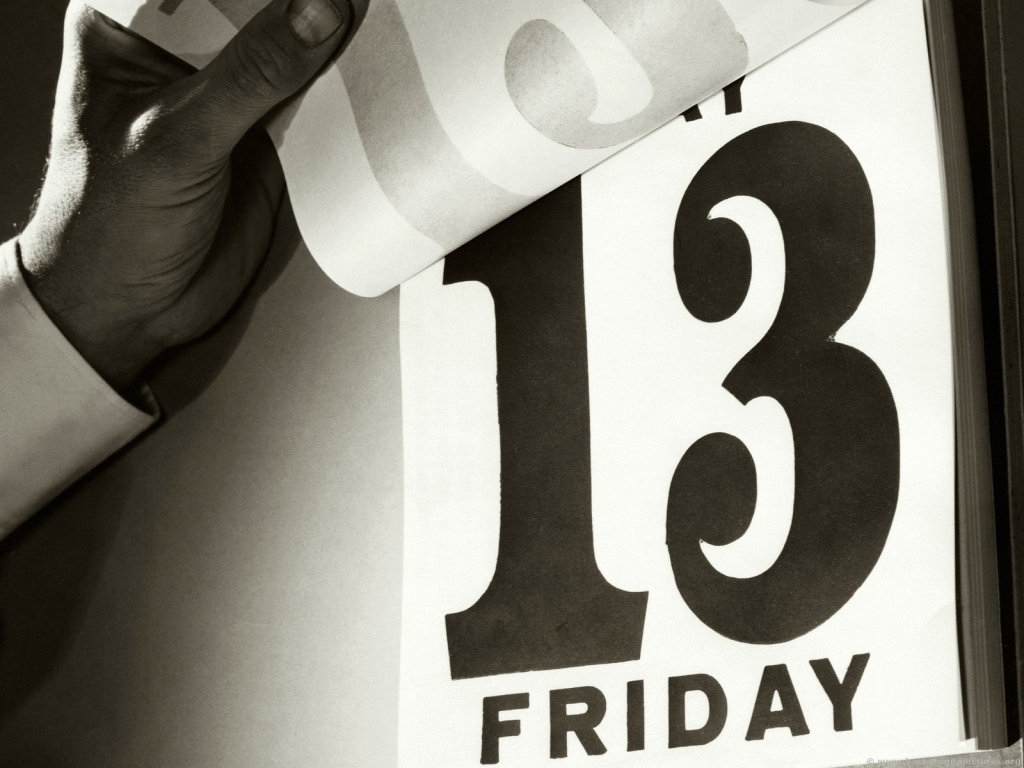It is no secret that many of us are superstitious, or were at least once in our lifetime. Superstitions stem from the same human trait that causes us to believe in monsters and ghosts: When our brains can’t explain something, we make stuff up. So what are the 10 most common superstitions?
10. Beginner’s luck
Usually grumbled by an expert who just lost a game to a novice, “beginner’s luck” is the idea that newbies are unusually likely to win when they try out a sport, game or activity for the first time.
Beginners might come out ahead in some cases because the novice is less stressed out about winning. Too much anxiety, after all, can hamper performance. Or it could just be a statistical fluke, especially in chance-based gambling games.
9. Black cats crossing your path
As companion animals for humans for thousands of years, cats play all sorts of mythological roles. In ancient Egypt, cats were revered; today, Americans collectively keep more than 81 million cats as pets.
So why keep a black cat out of your path? Most likely, this superstition arises from old beliefs in witches and their animal familiars, which were often said to take the form of domestic animals like cats.
8. A rabbit’s foot will bring you luck
Talismans and amulets are a time-honored way of fending off evil; consider the crosses and garlic that are supposed to keep vampires at bay. Rabbit feet as talismans may hark back to early Celtic tribes in Britain. They may also arise from hoodoo, a form of African-American folk magic and superstition that blends Native American, European and African tradition. [Rumor or Reality: The Creatures of Cryptozoology]
7. Careful with that mirror
According to folklore, breaking a mirror is a surefire way to doom yourself to seven years of bad luck. The superstition seems to arise from the belief that mirrors don’t just reflect your image; they hold bits of your soul. That belief led people in the old days of the American South to cover mirrors in a house when someone died, lest their soul be trapped inside.
Like the number three, the number seven is often associated with luck. Seven years is a long time to be unlucky, which may be why people have come up with counter-measures to free themselves after breaking a mirror. These include touching a piece of the broken mirror to a tombstone or grinding the mirror shards into powder.
6. 66
Three sixes in a row give some people the chills. It’s a superstition that harks back to the Bible. In the Book of Revelation, 666 is given as the number of the “beast,” and is often interpreted as the mark of Satan and a sign of the end times.
According to State University of New York at Buffalo anthropologist Philips Stevens, the writer of Revelation was writing to persecuted Christians in code, so the numbers and names in the book are contemporary references. Three sixes in a row is probably the numeric equivalent of the Hebrew letters for the first-century Roman Emperor Nero. [End of the World? Top Doomsday Fears]
5. Knock on wood
This phrase is almost like a verbal talisman, designed to ward off bad luck after tempting fate: “Breaking that mirror didn’t bring me any trouble, knock on wood.”
The fixation on wood may come from old myths about good spirits in trees or from an association with the Christian cross. Similar phrases abound in multiple languages, suggesting that the desire not to upset a spiteful universe is very common.
4. Make a wish on a wishbone
The tradition of turkey bone tug-of-war goes back a long way. Legend has it that first-century Romans used to fight over dried wishbones — which they believed were good luck — and would accidentally break them, ushering in the idea that whoever has the largest bit of bone gets their wish. Bird bones have also been used in divination throughout history, with a supposed soothsayer throwing the bones and reading their patterns to predict the future.
3. Cross your fingers
Those wishing for luck will often cross one finger over another, a gesture that’s said to date back to early Christianity. The story goes that two people used to cross index fingers when making a wish, a symbol of support from a friend to the person making the wish. (Anything associated with the shape of the Christian cross was thought to be good luck.) The tradition gradually became something people could do on their own; these days, just saying “fingers crossed” is enough to get the message, well, across.
2. No umbrellas inside
… And not just because you’ll poke someone’s eye out. Opening an umbrella indoors is supposed to bring bad luck, though the origins of this belief are murky. Legends abound, from a story of an ancient Roman woman who happened to have opened her umbrella moments before her house collapsed, to the tale of a British prince who accepted two umbrellas from a visiting king and died within months.
1. Friday the 13th
If you’re not scared of Friday the 13th, you should be scared of the word used to describe those who are: friggatriskaidekaphobics. (An alternative, though just as tongue-twisty, word for the fear is “paraskevidekatriaphobia.”)
For a superstition, the fear of Friday the 13th seems fairly new, dating back to the late 1800s. Friday has long been considered an unlucky day (according to Christian tradition, Jesus died on a Friday), and 13 has a long history as an unlucky number.
According to the Stress Management Center and Phobia Institute in North Carolina, about 17 million people fear Friday the 13th. Many may fall prey to the human mind’s desire to associate thoughts and symbols with events.
Image credits : blognajezykach.blogspot.com














